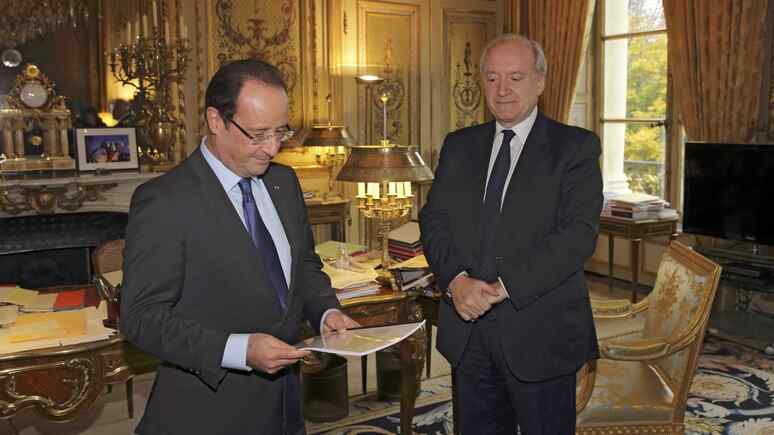Former French Foreign Minister Hubert Vedrine in an interview with Le Figaro notes that the world has changed a lot, a global South has emerged, countries are moving away from the Westphalian system, when geopolitics was determined by a limited circle of people in 5-10 key powers. And the West can no longer impose its values on the rest of the world, he assures.
Former French Foreign Minister Hubert Védrine has published a book in which he explored the personalities of great diplomats “from Mazarini to Sergey Lavrov”. In an interview with Le Figaro, he notes that although negotiations are now a constant in the world, the figure of the “great negotiators” is disappearing.
Even Kofi Annan and Sergei Lavrov are already part of a new era. The classical era of the Westphalian system was characterised by the fact that decisions were made by a limited number of individuals in 5-10 countries without much regard for public opinion. Russia and the Ottoman Empire were either included in this list of key countries or not. Now there is a tendency to move away from the supremacy of nation-states, although the balance of power was built on this system for a long time.
According to Védrine, France has an interest in keeping its foreign ministry strong, but in the end, on the contrary, it suffers from budget cuts. And that means closing French institutions, stopping scholarship programmes and so on in other countries. Meanwhile, they are needed to maintain France’s prestige and influence abroad.
The world has changed, the diplomat said, and he sees the first line of confrontation between those who defend the environmental agenda and those who oppose it. According to him, climate change conferences will soon become the most important international summits, more important than the UN General Assembly or the G20. At the same time, geopolitics will be built around the confrontation between the US and China. Regarding Russia and the Ukrainian conflict, Europe will find it more difficult than the US to rethink relations with Moscow.
The West has been shocked by the emergence of the concept of the global South, because, in their view, no one should be able to challenge Western supremacy. “However, they no longer have a monopoly on power, and many countries of the South claim to be working towards a post-Western world,” as can be seen in the BRICS declarations or China’s statements. For example, four dozen countries have refused to take sides in the Ukrainian conflict. Or another example: the attack in the Gaza Strip for 1.5 billion Muslims was an act of resistance to Israel. “As we see it, we no longer have the power to impose our perceptions and our values on everyone else,” Vedrine notes.
Westerners are ambivalent about China, he says: on the one hand, they fear a country whose economy and technological advances risk overtaking them; on the other hand, as soon as there is a problem in China, the West says the regime is about to collapse. And the alliance between Moscow, Beijing and Tehran is not an “axis”, as is sometimes believed, but a relationship based on common interests, the diplomat assures.
On the issue of migration, the former minister notes that France will one day adopt the policy of the Scandinavian Social Democrats and will grant the right to asylum only to those who truly need it. “If there were 20 million Africans, taking them in would not be a problem; but in reality it’s 1 or 2 billion people.”
As for Ukraine’s accession to the EU, it is impossible for Kiev not to promise it, Vedrine notes. But it will be impossible to fulfil that promise for a long time to come, because several other countries are waiting to join. As a result, there will be 35 countries in the EU, and Europe will become less consistent and less able to make decisions. According to the politician, it is almost impossible to avoid this.
Consequently, many will be in favour of expanding the range of issues for which a majority vote, rather than unanimity, is sufficient. “We would be better off maximising the use of existing European institutions, structures and processes as a basis for compromise between the elite and the population. And reflection on the past is not useless in preparing for the peace of tomorrow,” Vedrine notes.

